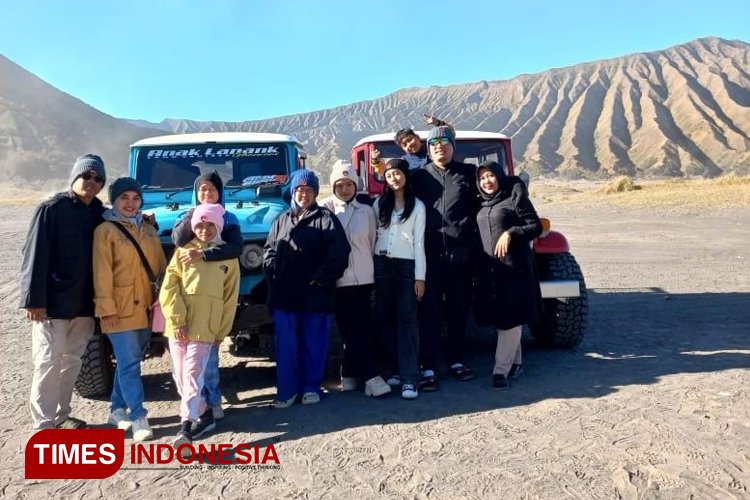TNBTS Bromo Prohibits the Tourists to Pinch Their Tents in These Areas

TIMESINDONESIA, PROBOLINGGO – In a recent announcement, the Bromo Tengger Semeru National Park Authority (TNBTS) has implemented a new regulation prohibiting camping in the entire Bromo area, including popular spots like Mentigen. This decision, effective immediately, comes as a response to several environmental and safety concerns.
Hendra, a representative from TNBTS, explained that the primary reason for this prohibition is the inadequate camping infrastructure in the area. “There are several factors, including the insufficient camping facilities,” Hendra stated on Friday (25/7/2024).
Advertisement
The camping sites in Bromo have been facing growing issues, particularly the accumulation of non-biodegradable waste such as plastic packaging, leftover food, and even human waste being discarded in inappropriate locations.
The accumulation of waste is not only an eyesore but also poses significant environmental hazards. It disrupts the natural landscape and contributes to pollution that can affect the flora and fauna in the region. Furthermore, the presence of human waste in natural settings is particularly concerning, as it can lead to the contamination of water sources and increase the risk of disease.
Another critical factor driving this decision is the ongoing concern over forest fires. TNBTS officials have observed that human activities, including the improper extinguishment of campfires, have contributed to wildfires in the past.
“Last year, we witnessed the severe impacts of such fires. Even the subsequent fires that occurred a few months ago are still fresh in our memories,” Hendra remarked, highlighting the potential dangers of uncontrolled camping activities.
In response to these issues, TNBTS has installed numerous signs and warnings across the park to inform visitors of the new regulation. Hendra emphasized that this ban on camping is indefinite and will remain in place until the necessary infrastructure is developed, and proper waste management solutions are implemented.
Septi, the Head of Administration at TNBTS, supported this decision, stating that the national park is managed based on zoning and the 3P principles—Protection, Preservation, and Sustainable Utilization.
“The national park can be utilized for limited activities, one of which is specialized tourism,” Septi explained. However, he stressed the importance of ensuring that these activities do not exert undue pressure on the ecosystem and that the safety and comfort of visitors are maintained.
The prohibition on camping is intended to safeguard the environment and enhance the visitor experience at Bromo. “The presence of waste, including human waste, undoubtedly causes discomfort,” Septi concluded, underscoring the necessity of the regulation.
TNBTS hopes that all visitors will comply with the new rule. Any violations, such as setting up tents, will be dealt with strictly, and violators will be required to dismantle their tents immediately. This proactive measure by TNBTS is seen as essential for preserving the natural beauty and ecological balance of the Bromo area, ensuring it remains a pristine and safe destination for all. (*)
**) Ikuti berita terbaru TIMES Indonesia di Google News klik link ini dan jangan lupa di follow.
| Editor | : Khodijah Siti |
| Publisher | : Rizal Dani |

